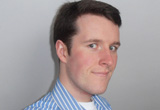 “Oh, you do medical humanities,” they say, before making excuses to change the subject or sidle away from me. Of course, that’s if they’re being polite. My friends just make fun instead.
“Oh, you do medical humanities,” they say, before making excuses to change the subject or sidle away from me. Of course, that’s if they’re being polite. My friends just make fun instead.
During this year of my studies, I have intercalated in a degree in biomedical science. This culminates in an academic project. While my friends have spent the last two months pipetting ad nauseum and complaining over their manifold mistakes, I have been learning about the social and cultural context that medicine fits into. Books, films, and poetry have been my apparatus; workshops, museums, and galleries have been my laboratory.
It has been worth the ribbing from my mates. It is something of an oddity, especially at my college, one of the more heavily scientific universities in the UK, but I am grateful for the opportunity. At this stage in my education, with graduation in the not-too-distant future and life as a doctor just beyond that, the time is right for a spot of reflection.
If I had continued with medicine as usual, firm after firm, it would have been like going down a tunnel. I would become increasingly stuck with a certain way of seeing things. A broken leg is a broken leg and needs re-setting and analgesia. Next patient, please.
Instead, I’m beginning to see things in a spectrum of views. A broken leg is a broken leg, but it’s attached to person who now can’t walk and is in pain. The leg needs treating, but its owner also needs help. That help goes beyond morphine. Although I don’t quite see how quoting Virginia Woolf to a patient is going to help.
There’s nothing technical wrong with either approach, but I’m beginning to see that the latter might just make me a better doctor. Maybe not Oliver Sacks but somewhere in that direction. It not just all about me either. Research shows that patients prefer it when they’re dealt with like a person, when their ideas and concerns are addressed by their doctor. To the cynics out there, this approach also improves clinical outcomes.
I am aware that there are many fine doctors and students out there who are naturally holistic without the need for a special study module. I however appreciate the help.
But medical humanities should not be compulsory for medical students. I am vehemently against this. Anything compulsory is duly attended but interest is notably absent. I’ve seen it in seminars on communication skills. Asking students to compare the role of literature in sickness between Broyard and Mantel is pointless unless they want to get something out of it. In my mind, medical humanities is too important to be compulsory.
Although, the downside is I have no idea what to do with a cannula now.
Rhys Davies is a medical student in his fourth year at Imperial College, London.